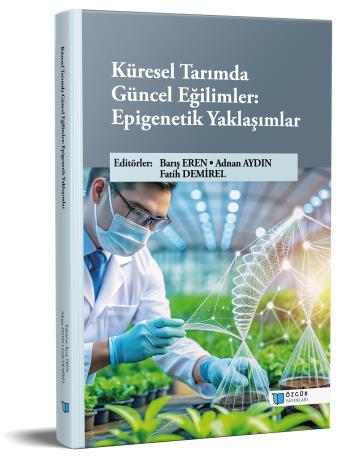
Exogenous Abiotic Inducers and Their Role in Plant Epigenetic Reprogramming
Chapter from the book:
Eren,
B.
&
Aydın,
A.
&
Demirel,
F.
(eds.)
2025.
Current Trends in Global Agriculture: Epigenetic Approaches.
Synopsis
Plants are constantly exposed to various abiotic stress factors such as drought, salinity, and heavy metal toxicity throughout their life cycle. These environmental stresses not only disrupt physiological processes but also profoundly affect epigenetic mechanisms that regulate gene expression. DNA methylation, histone modifications, and RNA-based regulation play central roles in enabling plants to rapidly and flexibly reprogram their genetic responses to environmental cues. Recent studies have highlighted that exogenous applications of molecules such as polyamines (putrescine, spermidine, spermine), melatonin, and silicon can induce significant changes in the epigenetic landscape, thereby enhancing stress tolerance. This chapter examines the role of exogenous abiotic inducers in plant epigenetic reprogramming under four major stress categories: polyamines, salt stress, drought stress, and heavy metal stress. Findings demonstrate that exogenous treatments not only modulate immediate stress responses but also contribute to the establishment of epigenetic memory, leading to improved tolerance in subsequent generations. Thus, exogenous inducers hold promising potential as strategic tools in epigenetic engineering and crop improvement programs.

